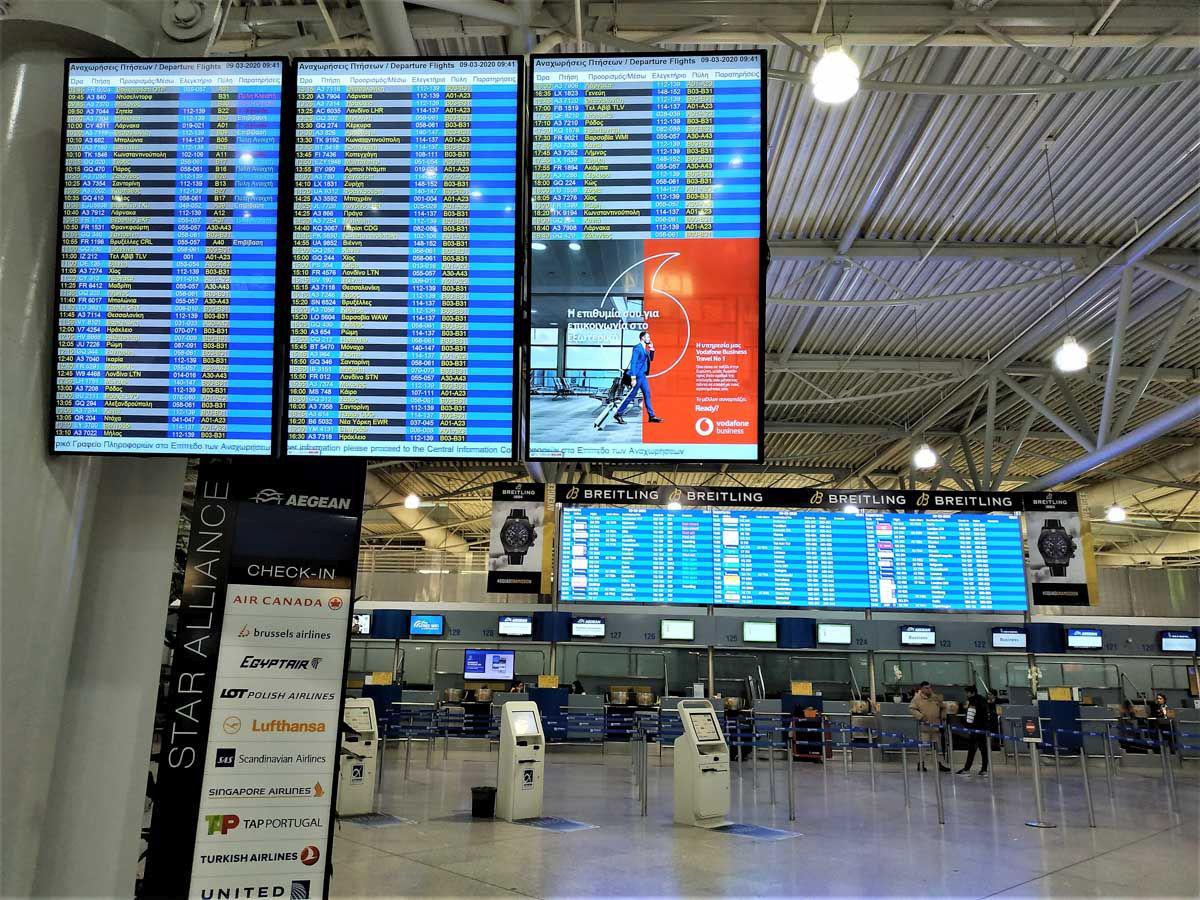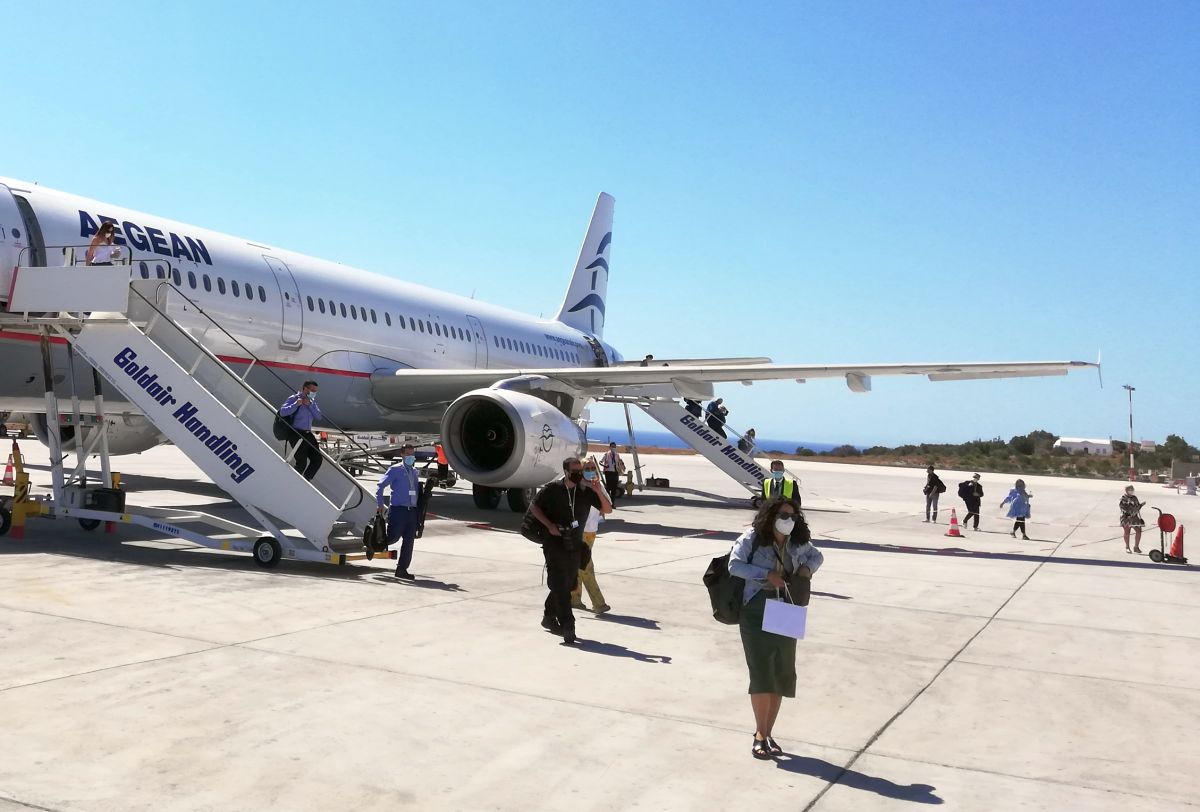The Acropolis Museum Celebrates 12 Years Today
Today, Sunday 20 June 2021, the Acropolis Museum celebrates its twelfth anniversary.
The anniversary comes as the Museum has undergone its most difficult year to date, re-opening on May 14 after being closed to the public for more than six months due to the Covid-19 pandemic.
Making the most of the enforced closure, museum staff, under the leadership of archaeologist Stamatia Eleftheratou, seized the opportunity to catch up on restoration projects and maintenance.
Further additions were made to the permanent exhibition, including the Makrigiannis plot, an excavation gallery uniquely incorporated into the architecture beneath the museum that showcases an ancient Athenian neighbourhood.
Now refreshed and renewed, the Acropolis Museum, welcomes visitors on the day of its birthday from 8 am until 8 pm, with reduced entry (5 euro) to all exhibition areas. Additionally, visitors will have the opportunity to participate in the new thematic presentation “Marathon-Salamis. In traces of myth and history”.
In this presentation, visitors will discuss with the Museum’s archaeologists about the Persian wars and their significance for the western world, the colliding opponents and the role played by gods and goddesses, the importance of the Marathon battle in the victory of the Salamis naval battle, the price paid by the Acropolis and how it was transfigured into creation and, finally, how the great moments of history are depicted in the exhibits of the Acropolis Museum.
Following the Museum’s birthday, this thematic presentation will be offered to Museum visitors every Friday and every Sunday.
| USEFUL INFORMATION | |
| Greek | 12 noon, 4 p.m. & 6 p.m. |
| English | 10 a.m. & 2 p.m. |
| Registration | Please refer to the Information Desk at the Museum entrance on the same day. First-in first-served. Limited to 8 visitors per session. |
| Health protection measures | It is necessary to wear a protective mask (not provided by the Museum) and to use the whisper guide system headsets (provided by the Museum). |
| Price | The general admission fee (5 euro for this particular day) to the Museum is required. |
The Acropolis Museum, one of the Most Important World Museums
The Acropolis Museum is one of the most important museums in the world, home to some of the most breathtaking artefacts known to man.
In May 2013, among 50 Museums, the ‘London Times’ voted it the third most important world museum, after the Smithsonian in Washington DC and the British in London.
Focused on the archaeological site of the Acropolis of Athens, the museum was built to house every artefact found on the rock and on the surrounding slopes, from the Greek Bronze Age to Roman and Byzantine Greece. It also lies over the ruins of a part of Roman and early Byzantine Athens.
The Galleries of the Acropolis Museum
There are three main galleries in the museum which include the Parthenon Gallery, the Archaic Gallery and the Gallery of the Acropolis Slopes.
The Gallery of the Acropolis Slopes on the ground floor houses significant finds found in the sanctuaries that were built on the slopes of the Acropolis as well as exhibits that were used by ancient Athenians during their day to day activities.
The Archaic Gallery on the first floor measures 9 metres in height. This gallery houses exhibits that once beautified the first temples that were built on the Acropolis as well as ancient Greek votive offerings such as Korai, Hippies (ancient horse riders), statues of Goddess Athena, sculpted male figures, bronze artefacts, clay offerings and some marble reliefs; as well as sculptures and finds dating back to the Byzantine era. Exhibits from the Propylaia, the Erechtheion and the temple of Athena Nike are also housed on the first floor.
The purpose-built Parthenon Gallery on the third floor, with ceiling-high glass walls that offer uninterrupted views of the nearby temple and of Athens, houses the Parthenon’s sculpted friezes and metopes in sequence – as the gallery continues to press the case for the reunification of the marbles currently on display in the British Museum.
Greece’s First Digital Museum
Last year, Acropolis Museum became the first museum in Greece to ‘go fully digital’, after completing a comprehensive digitalisation project.
Showcasing exhibits in high definition alongside an array of multimedia applications, the Museum website provides detailed information on 2,156 artefacts in its permanent collection, as well as a dedicated website for children; the Acropolis Museum Kids.
International Praise and Recognition for the Acropolis Museum
Designed by Swiss architect Bernard Tschumi and his Greek collaborator Michael Photiadis, following 33 years of three unresolved competitions that included 438 international entries, the Acropolis Museum was opened to the public on June 20, 2009.
Since its opening, the museum has received international praise for its innovative and visitor friendly design.
In 2011, the Acropolis Museum was awarded Best Design of 2011 by the AIA (American Institute of Architects) and selected as one of six finalists for the European Union Prize for Contemporary Architecture in the ‘Mies Van de Rohe’ Architectural Competition
The Museum was designed to receive 10,000 visitors daily within its 23.000 square metres mixed area and between 2009 and 2018 it received over 8 million visitors.
All of the Museum’s expenses are totally covered by its own profits (tickets, gift shops, restaurant) without state or private funds.















